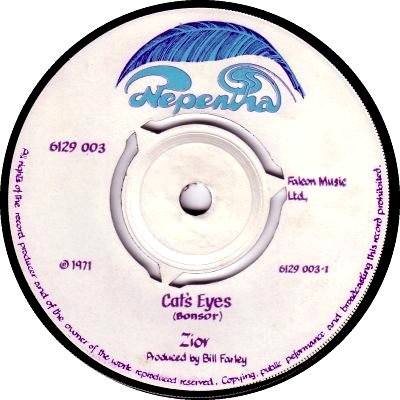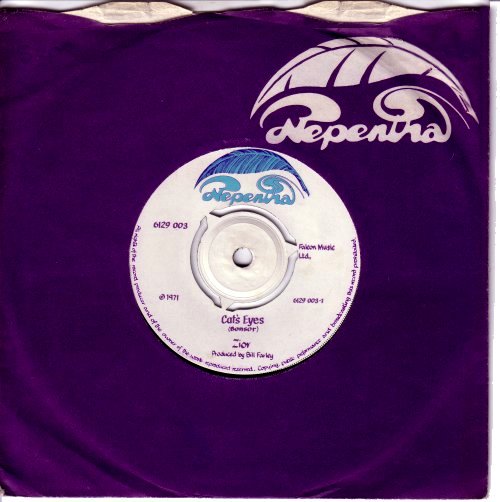


A short-lived Progressive part of Larry Page's 'Page International' company, and thus a sibling of Penny Farthing. The first mention of a Progressive label for Penny Farthing in 'Record Retailer' came on the 15th of August 1970: it was to be called 'Rocking Horse' and the reason for its existence was that according to Larry Page people didn't want to buy progressive music on Penny Farthing. The issue of the 22nd of that same month reported a problem : Simon Napier-Bell and Ray Singer had already registered the 'Rocking Horse' name. Page is quoted as saying that he intended to press on with the use of the Rocking Horse name as Napier-Bell's was 'not a limited firm'. On the 29th there was the information that Rocking Horse was to be a separate entity not a subsidiary; an article on the 5th of September said that Dulcimer had signed to Rocking Horse, while the issue of the 31st of October reported that the first Rocking Horse LP was to be by Pete Dello. At this point there seems to have been a lull, during which the name was changed. 'RR' of the 7th of November 1970 claimed that Page was planning to launch a new label, 'Page International', but that name seems not to have stuck at the time.
The next mention of the Progressive label was on the 16th of January 1971, when it was stated that Nepentha (previously Rocking Horse) had signed a three-year deal with Philips. The label was intended for 'writer / artists', and the first six albums would probably appear in March. One of them was intended to be 'Showcase' by David Matthews, but in the event that LP appears to have been shelved. When March rolled around the launch date was put back to May. Five albums and three singles eventually appeared, but on the 29th of April 1972 'Record Retailer' said that a statement about the label's future was expected from Larry Page. It came in the issue of the 6th of May, and it said that in future Nepentha would be known as 'Page International' (q.v.). Page wanted a more mundane name for it, and he said "I probably goofed by chosing such an esoteric name." The handful of albums by Pete Dello, Dulcimer, Zior, Robin Lent and Earth & Fire are all highly collectable nowadays. The three singles appear to be even rarer than the albums, though obviously they aren't as pricey. Numbering was in a 6129-000 series, which continued to be used by Page International after 6129-003. Unusually, Nepentha used a handwriting font for its label credits; offhand, the only other non-DIY company I can think of which did that was Fly (q.v.). Presumably the 'quill' part of the label design signified the intention to feature songwriters' material. Manufacture and distribution were by Philips / Phonodisc. In common with the other Philips and Polydor labels, singles can be found with either pushout centres (1) or large central holes (2). Demo copies were merely issue copies with a sticker on them (2).



Copyright 2006 Robert Lyons.

